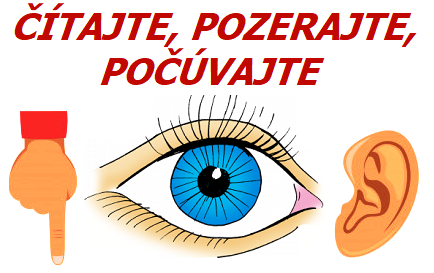27 Krajina, ktorej jazyk sa učím - GREAT BRITAIN :)
Vytvorené: 06. 04. 2014 Tlačiť
a) Geography
The United Kingdom of Great Britain and Northern Ireland are situated on the British Isles on the north-western coast of Europe. The country is separated from the continent by the English Channel and the Strait of Dover in the south and the North Sea in the east. The British Isles consist of two large islands: Great Britain and Ireland. The UK is surrounded by over 1,000 smaller islands, for example Isle of Man, Isle of Wight, the Hebrides, the Orkneys, the Shetlands or the Channel Islands. The total area of the United Kingdom is 244 square kilometres. The important rivers include the Thames, the Mersey, the Trent and the Severn. The Severn is the longest river. In northwest England and the Scottish Highlands are dozens of lakes, called lochs. The biggest lakes are Lake Windermere, Loch Lomond, Loch Ness and Lake Derwentwater. Most of Great Britain is flat or hilly. The Scottish highlands in the northern part of the island include Ben Nevis, the tallest mountain in the United Kingdom. Other mountains include the Pennines,the Cumbrian Mountains or the Cheviots Hills.
Great Britain has got mild and rainy climate determined by the warm Gulf Stream.
b) History
The first people who live in the United Kingdom were the Picts, who arrived about 10 000 years ago. In the eighth century B.C., the Celts arrived from Europe and pushed the Picts north into Scotland. In A.D. 43, the Romans invaded and ruled for nearly 400 years. They built roads, bathhouse, sewers, and large villas. By the sixth century A.D., Angles, Jutes, and Saxons were moving into Britain. The Angles gave their name to England, and English people became known as Anglo-Saxons. From the 900s to the 1400s, England was ruled by Viking, Danish, and Norman invaders. In 1485 the Welsh noble Henry Tudor claimed the English crown and became Henry VII, the first of five Tudor monarchs. Several important lines of kings and queens followed. Henry VIII. is known as a king who had 6 wives and established the Church of England. Elizabeth I. was daughter of Henry VII. During her reign, England prospered in many ways. She enforced the Protestant religion by law. By the 1800s, Britain was one of the most powerful nations in the world. Trade generated immense wealth, and the country built a huge overseas empire. But the early 20th century was a time of setbacks for Britain. Drained by World War I and II, Britain could no longer afford its empire, and most of its colonies became independent. Nevertheless, most remained members of the Commonwealth.
c) Goverment and economy
The United Kingdom is a constitutional monarchy. The present sovereign is Queen Elizabeth II.. She is formal ruler and has only representative function. The Queen’s residence is Buckingham Palace in London. The Cabinet governs the UK and it consists of about 20 leading ministers. It is headed by the Prime Minister. His official residence is 10 Downing Street. The supreme legislative body is Parliament. It is composed of the House of Lords and the House of Commons. The two Houses share the same building, the Palace of Westminster in London. The House of Lords also functions as the highest court. Britain´s most important political parties are the Conservative party and the Labour party.
The British currency is one pound which has 100 pennies.
d) People - population, languages
Great Britain has got the population of more than 56 million people. There are following ethnic groups: English, Scottish, Irish, Welsh, Ulster. Majority of people speaks English. However, there are also other languages like Welsh or Gaelic.
e) Industry, ekonomy
Great Britain is a developed, industrialised country. Major industries include iron and steel engineering, textiles, plastics, cotton, chemicals, electronics, wool, shipbuilding and food products. Coal, oil, steel, gas are Britain’s leading mineral resources. The main agricultural products are wheat, barley, oats, potatoes, sugar beet, milk, and meat.
f) Town and places
The largest cities of Great Britain are London, Birmingham, Glasgow, Liverpool, Manchester, Sheffield, Bristol, Leeds and Edinburgh.
g) Places of interest
There are many interesting places in UK besides its capital city. One of the most popular tourist attractions is Stratfort-upon-Avon, the birthplace of William Shakespeare. Another place of interest is Stonehenge near Salisbury. Stonehenge is composed of a circular setting of large standing stones. The purpose of this stone formation is unknown, but scientists assume that it served as astronomical calendar. Oxford and Cambridge are one of the oldest universities in the world.Canterburyis the seat of the Archbishop and there is a magnificent cathedral whose oldest part originates from 11th century.Winchester is the ancient Roman town with a majestic cathedral. It is the longest church in Europe and has 170 m. Bath is worth seeing for the remains of the Roman bath built 2 000 years ago.
h) Famous personalities
William Shakespeare is the greatest English playwright and poet. His best known tragedies include Hamlet, Othello, King Lear and Macbeth. George Bernard Shaw is also an important British playwright and critic. He was awarded the Nobel Prize for Literature, but he refused it. Agatha Christie was a detective novelist. Well- known is the British rock-style music group The Beatles. Alfred Hitchcock gained fame as a director of horror films like Psycho or The Birds. There are also many significant scientists coming from Britain. Charles Darwin developed the theory of evolution. Alexander Fleming discovered penicillin. Isaac Newton discovered the law of gravitation.
i) Habits, traditions, prejudices
English people are said to be very punctual. It is also said that the English love their pets more than other people. English are very serious and reserved and they don´t use body language. They eat a big breakfast in the morning with bacon, eggs, toasts, sausages and baked beans. In England, they love gardening and their parks are always clean. The English like drinking tea. The Brits have their own unique sense of humour and it is renowned worldwide.
![]()
· Simulácie z fyziky· O Slovensku po slovensky· Slovenské kroje· Kurz národopisu· Diela maliarov· Kontrolné otázky, Domáce úlohy, E-testy - Priemysel· Odborné obrázkové slovníky· Poradňa žiadaného učiteľa· Rýchlokurz Angličtiny. Rozprávky (v mp3)· PREHĽADY (PRIBUDLO, ČO JE NOVÉ?)Seriály:· História sveta (1÷6)· História Slovenska (1÷5)· História módy (1÷5).
Členstvo na portáli
Poznámka pre autora
Copyright © 2013-2026 Wesline, s.r.o. Všetky práva vyhradené. Mapa stránky ako tabuľka | Kurzy | Prehľady |






